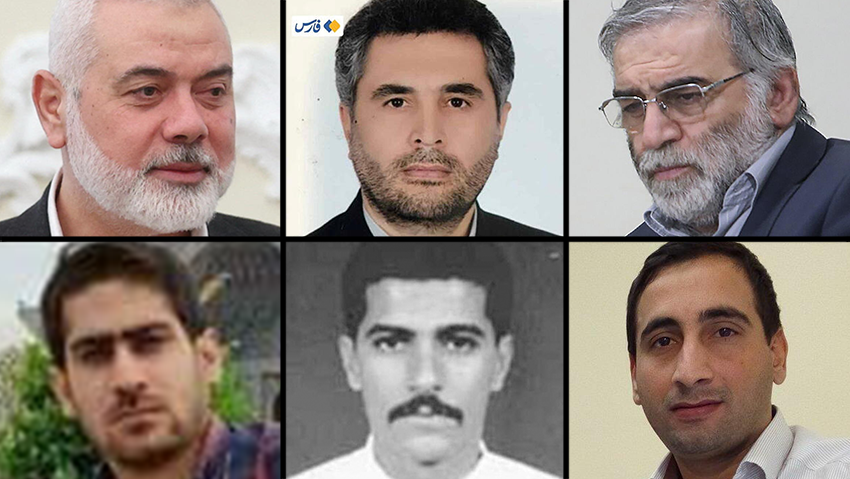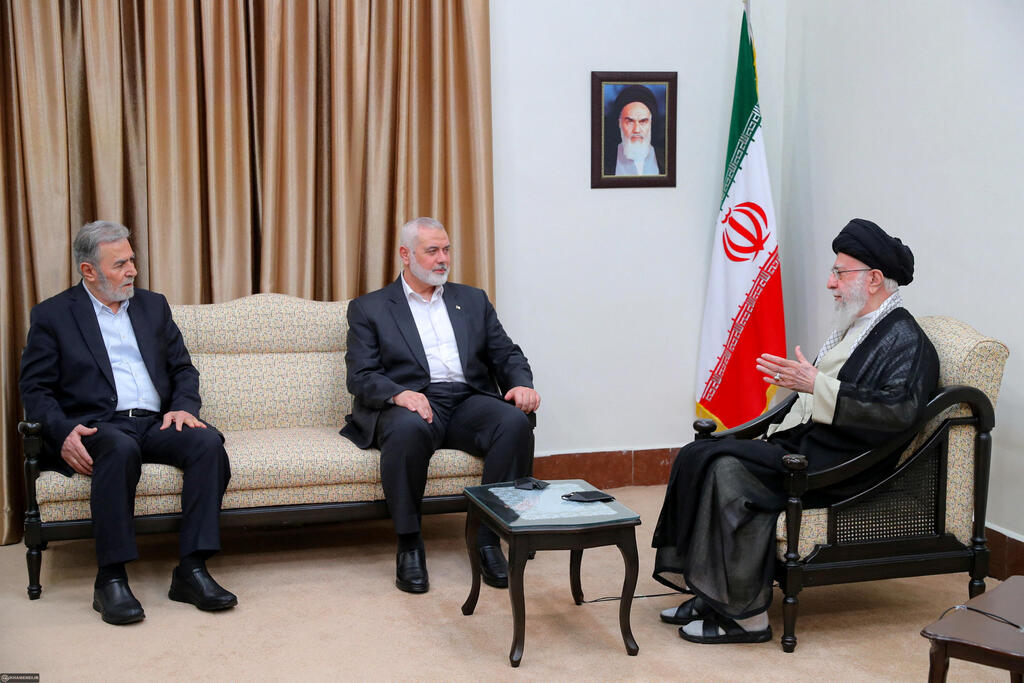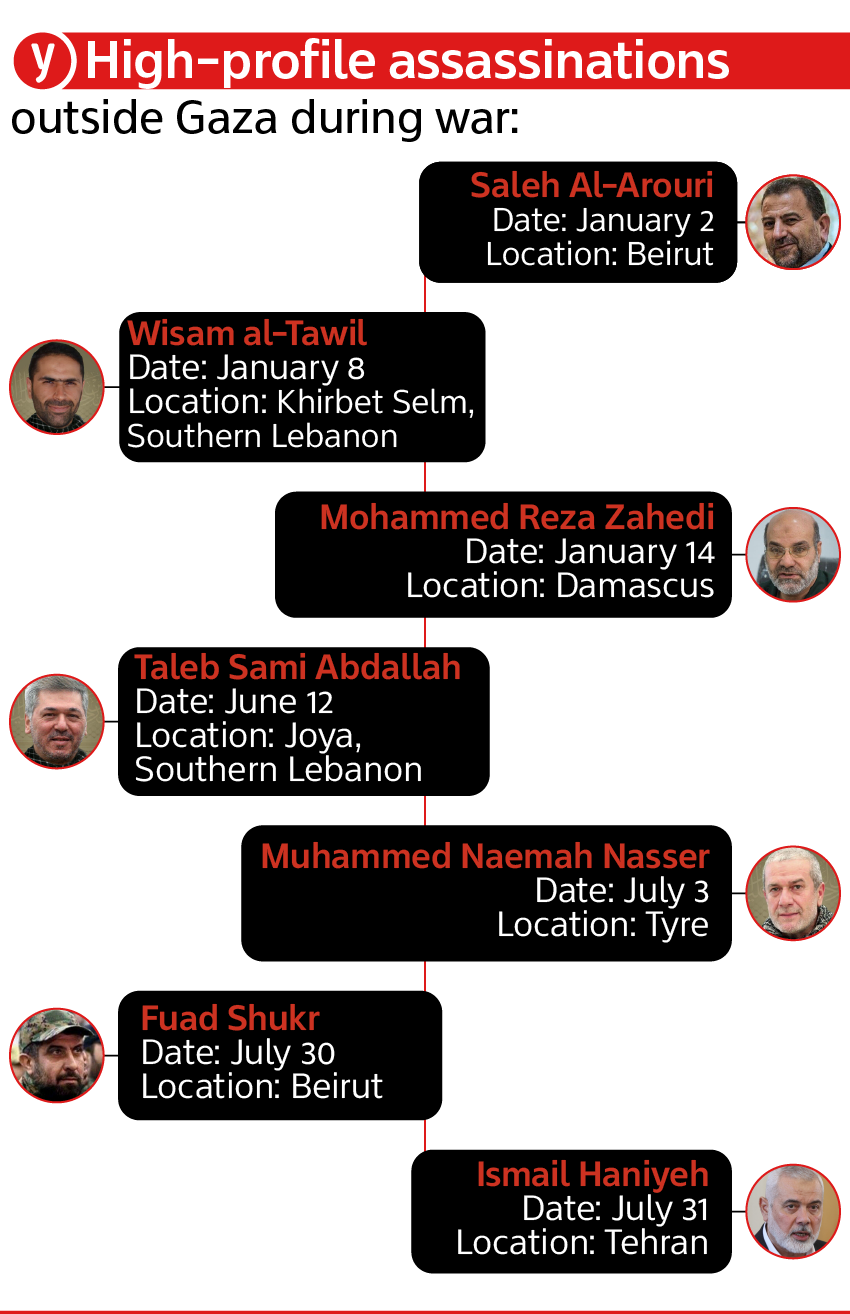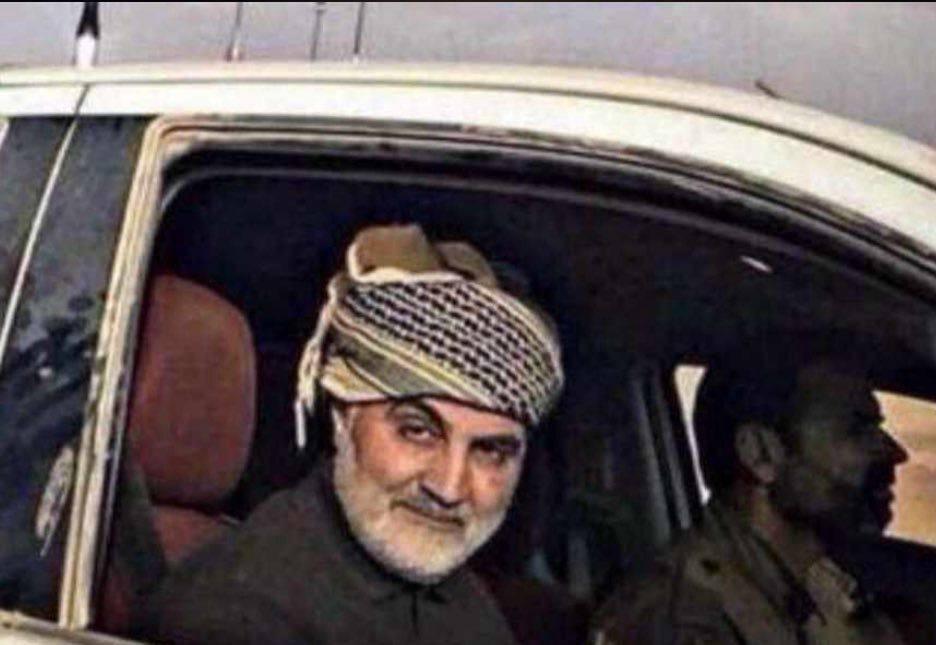Getting your Trinity Audio player ready...
The assassination of Hamas political bureau chief Ismail Haniyeh on Wednesday adds to a growing list of mysterious killings in Iran.
For years, Iran and Israel have been engaged in a shadow war, accusing each other of sabotage, kidnappings and assassinations. Tehran has attributed several high-profile killings on its soil to Israel, some of which remain unsolved.
4 View gallery


From top left clockwise: Ismail Haniyeh, Hassan Sayyad Khodaei, Mohsen Fakhrizadeh, Ayoob Entezari, Abdullah Ahmed Abdullah and Kamran Malapour
(Photo: AP, Reuters/West Asia News Agency, from Twitter, AFP)
One notable assassination was that of senior nuclear scientist Mohsen Fakhrizadeh in November 2020. Described by Israel and the U.S. as a leading figure in Iran's nuclear weapons program, Fakhrizadeh was killed in a road ambush using an autonomous satellite-operated gun.
According to The New York Times, he was a top target for Israeli intelligence for years. Iran blamed Israel for his death, although Israel never officially responded to the allegations.
Fakhrizadeh was not the first scientist linked to Iran's nuclear program to be attacked. In 2010, two Iranian officials were targeted with car bombs in Tehran, 20 minutes apart. One was killed, and the other injured.
In May 2022, senior Revolutionary Guards commander Colonel Hassan Sayyad Khodaei, known as "The Hunter," was assassinated in Tehran. Fluent in Turkish, Kurdish and Arabic, Khodaei was known for recruiting drug dealers to carry out attacks.
Before his death, he had attempted to target Israelis globally in retaliation for the killings of Iranian nuclear scientists attributed to Israel. Iran accused Israel of his killing and vowed revenge.
Reports at the time indicated that Israel informed American officials it was responsible, intending to warn Iran to cease the activities of Quds Force's covert unit responsible for kidnappings and assassinations worldwide.
Three days after Khodaei's assassination, Iranian engineer Gad Beigi died in an "industrial incident" at the Parchin military base, linked to Iran's defense ministry. Days later, Iranian officials told The New York Times that drones attacked the facility where missiles, nuclear technology and drones are developed.
4 View gallery


Palestinian Islamic Jihad Secretary-General, Haniyeh and Iranian Supreme Leader Ayatollah Ali Khamenei
(Photo: Office of the Iranian Supreme Leader/WANA (West Asia News Agency) via REUTERS)
Another mysterious death in Iran involved Ali Ismail Zadeh, who reportedly "fell from the roof of his home" in Karaj. According to Iran International, a London-based opposition site, senior Revolutionary Guards officials informed his family that he had left a suicide note. Zadeh, a senior commander in the Quds Force's Unit 840, was allegedly killed by the Revolutionary Guards, suspecting he leaked information leading to Khodaei's assassination.
In May 2022, two Iranian scientists died under mysterious circumstances within days, in cities hundreds of miles apart. Aerospace scientist Ayoob Entezari, who managed major security projects at the AIO research institute in Yazd, died under unclear circumstances, with some reports suggesting food poisoning. Similarly, Kamran Malapour, a nuclear scientist working at the Natanz facility, developed symptoms of food poisoning and died. Iran accused Israel of poisoning both scientists.
A significant assassination on Iranian soil was that of Abdullah Ahmed Abdullah, also known as Abu Muhammad al-Masri, al-Qaeda's second-in-command, in 2020. A founder of al-Qaeda, Abdullah participated in the 1998 attacks on U.S. embassies in Africa, with a $10 million bounty on his head.
Reports say Israeli agents, at the request of the U.S., killed him in Tehran. He was killed alongside his daughter, Maryam, the widow of Osama bin Laden's son, Hamza bin Laden, on August 7, the anniversary of the embassy attacks in Kenya and Tanzania.
Another major assassination, not on Iranian soil and not conducted by Israel, was that of Qassem Soleimani, the commander of Iran's Quds Force. He was killed in a U.S. airstrike in Iraq in January 2020.
Last October, former U.S. President and presidential candidate Donald Trump claimed Prime Minister Benjamin Netanyahu refused to assist the U.S. with the operation. "I will never forget that Bibi Netanyahu let us down. That was a terrible thing. We were very disappointed, but we did the job ourselves, and it was a precision, great, wonderful job. And then Bibi tried to take credit for it. That didn’t make me feel too good, but that's okay," Trump said.





